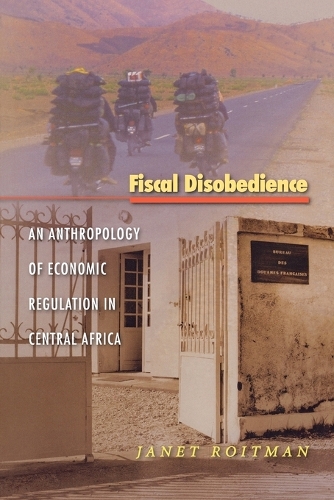
Fiscal Disobedience: An Anthropology of Economic Regulation in Central Africa
(Paperback)
Publishing Details
Fiscal Disobedience: An Anthropology of Economic Regulation in Central Africa
By (Author) Janet Roitman
Princeton University Press
Princeton University Press
3rd January 2005
United States
Classifications
Professional and Scholarly
Non Fiction
330.967
Physical Properties
Paperback
256
Width 152mm, Height 235mm
340g
Description
Fiscal Disobedience represents a novel approach to the question of citizenship amid the changing global economy and the fiscal crisis of the nation-state. Focusing on economic practices in the Chad Basin of Africa, Janet Roitman combines thorough ethnographic fieldwork with sophisticated analysis of key ideas of political economy to examine the contentious nature of fiscal relationships between the state and its citizens. She argues that citizenship is being redefined through a renegotiation of the rights and obligations inherent in such economic relationships. The book centers on a civil disobedience movement that arose in Cameroon beginning in 1990 ostensibly to counter state fiscal authority--a movement dubbed Operation Villes Mortes by the opposition and incivisme fiscal by the government (which for its part was eager to suggest that participants were less than legitimate citizens, failing in their civic duties). Contrary to standard approaches, Roitman examines this conflict as a "productive moment" that, rather than involving the outright rejection of regulatory authority, questioned the intelligibility of its exercise.Although both militarized commercial networks (associated with such activities trading in contraband goods including drugs, ivory, and guns) and highly organized gang-based banditry do challenge state authority, they do not necessarily undermine state power. Contrary to depictions of the African state as "weak" or "failed," this book demonstrates how the state in Africa manages to reconstitute its authority through networks that have emerged in the interstices of the state system. It also shows how those networks partake of the same epistemological grounding as does the state. Indeed, both state and nonstate practices of governing refer to a common "ethic of illegality," which explains how illegal activities are understood as licit or reasonable conduct.
Reviews
"The whole book is a sophisticated essay on how to bring such an area and problematic into focus: the question of regulatory authority in places where it has never been self-evident. As such, it opens up some very important analytical issues, not only for African studies but also for an anthropology of emergent economies worldwide."--Jane I.Guyer, International Journal of African Historical Studies
Author Bio
Janet Roitman is a research fellow at the Centre National de la Recherche Scientifique in Paris.
